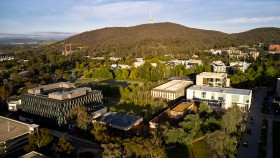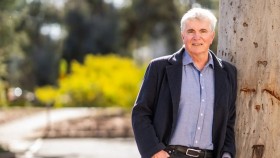Designing the streetscapes of the future
How can urban forests and greening make our cities cooler, healthier, wealthier and more attractive? Research by Assoc Prof Cris Brack of the Fenner School of Environment & Society is focused on developing the best approaches for urban forestry.
Recent research has highlighted trees’ potential in helping us adapt to climate change; shade trees can reduce heat by up to 22°C compared with unshaded street areas, so leafy suburbs are naturally cooler.
But street trees are not just great for climate adaptation.
“It’s important to look at the balance of benefits that urban greening provides – trees capture carbon, provide health, aesthetic, economic, social and psychological benefits. For example the right tree in front of your house can add 10-20% in value and research also tells us that people spend more money in greened shopping centres.”
Prof Brack highlights the particular harshness of the urban environment with its mass of hard surfaces. Unlike garden trees, once streets plants are established, they’re left to look after themselves.
“It’s going to get hotter and, more importantly for the trees, it’s going to get relatively drier”, he said. “When the rain comes, it will come in a dump and because the whole city is designed to get rid of the water quickly, not much of it gets into the ground so the trees miss that recharging. So we need to pick trees that will survive in a hotter drier climate and or change the way we get rid of water in the city.”
“Traditionally we’ve planted out whole suburbs with the same species at the same time,” he said. “This means that they are vulnerable to disease, and are likely all die at the same time. People get very attached to local trees, but unfortunately we can’t manage each individual tree, we have to manage the forest as a whole.”
With the support of the ACT Govt, Prof Brack’s research is helping determine the best mix of species for the streetscapes of Canberra for the next 50 years and beyond.











